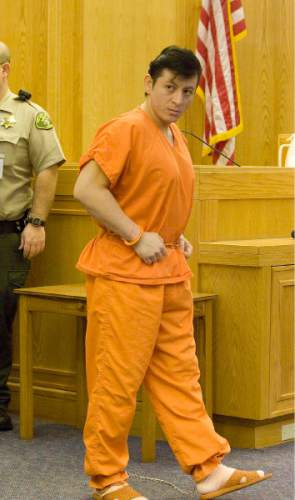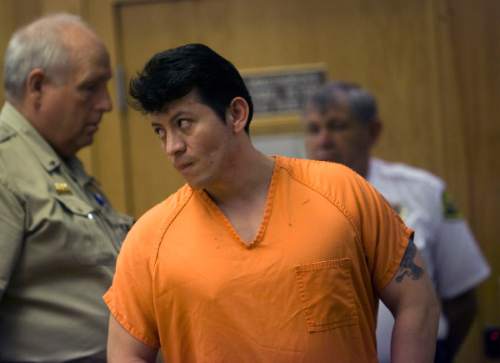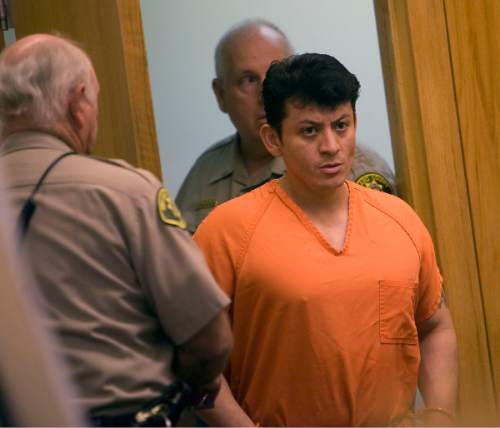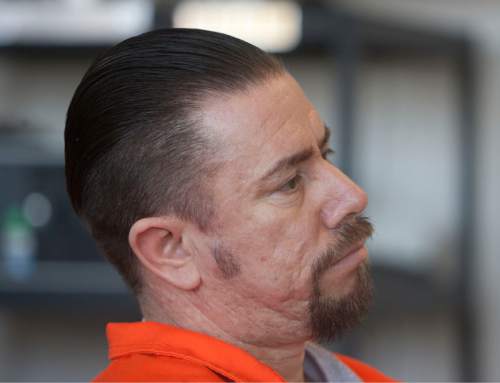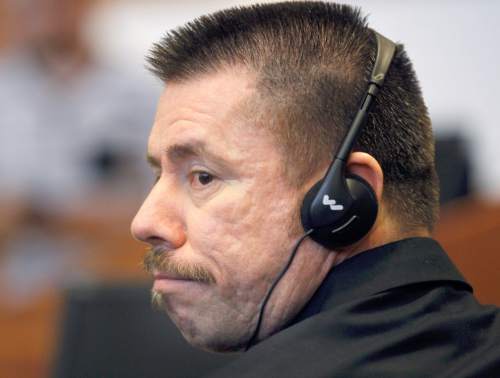This is an archived article that was published on sltrib.com in 2015, and information in the article may be outdated. It is provided only for personal research purposes and may not be reprinted.
Ruben Chavez-Reyes was charged with obstruction of justice, but the "overwhelming facts" that came out at his 2010 trial were about the slaying of Millard County sheriff's Deputy Josie Greathouse Fox, an attorney says.
That "irrelevant" evidence, including a photo of Fox's body by the side of the road, tilted the case against Chavez-Reyes and helped lead to his conviction on the obstruction charge for allegedly helping a friend suspected of killing the deputy flee, attorney Rudy Bautista told the Utah Court of Appeals on Wednesday.
"This case is about assuring that fairness at trial is upheld," said Bautista, who is asking the court to grant Chavez-Reyes a new trial.
Chavez-Reyes had given a ride to Roberto Miramontes Roman, who was suspected of killing Fox. But Bautista argued that the jury needed only to know that Roman was wanted for a felony.
"The underlying facts as to this murder were irrelevant," said Bautista, who is Chavez-Reyes' appellate attorney and did not represent him at trial.
His client also was harmed by a prosecutor's improper remarks at trial that the slaying would not have occurred if Chavez-Reyes had not loaned his Cadillac to Roman two months earlier. Roman was driving that vehicle when Fox was killed.
Assistant Utah Attorney General Jeffrey Gray argued there was no prejudice created and noted that the jury acquitted Chavez-Reyes of two of the five charges against him. He also said Chavez-Reyes' trial attorney did not object to use of the photo of the slain officer.
"The jury is entitled to know what happened that night," Gray said of Fox's slaying.
He added that the prosecutor never said that loaning the car was connected to the obstruction of justice and said that even absent the prosecutor's remarks, there would have been no reasonable chance of an acquittal on the charge because of the amount of evidence against Chavez-Reyes.
The Court of Appeals will issue a decision in the case at a later date.
Prosecutors claim Roman, now 42, fatally shot 37-year-old Fox during a Jan. 5, 2010, traffic stop, then called Chavez-Reyes for help. Chavez-Reyes, now 41, was accused of helping Roman flee Millard County after Roman got the Cadillac stuck in a snow bank, going first to Salt Lake City and later to Beaver, where the two were arrested.
At trial, Chavez-Reyes' defense attorney, the late James Slavens, said his client didn't know at first that Roman was wanted in Fox's slaying and thought he was helping a friend with car trouble. After learning what had happened, Chavez-Reyes went along with Roman in the hope that police would sort things out and determine that he was not involved in the killing, Slavens claimed.
A 4th District jury convicted Chavez-Reyes of obstructing justice, burglarizing a storage shed in Beaver and tampering with evidence for smashing his cell phone, which prosecutors said was done to avoid being tracked. The jury acquitted him of burglarizing a home and illegally possessing a firearm as an undocumented immigrant.
Judge Donald Eyre sentenced Chavez-Reyes to 1 to 15 years in prison for obstructing justice and up to five years each for the other counts. He was denied parole in 2011 and his next hearing before the Utah Board of Pardons and Parole is slated for January 2017.
At his 2012 trial on a murder charge, Roman took the stand and testified that Fox's own brother, Ryan Greathouse, fired the fatal shots.
He claimed that after he sold methamphetamine to Greathouse and smoked it with him, the two were driving toward Hinckley when Fox pulled them over. Roman said Greathouse placed an AK-47 against Fox's chest and fired twice.
Roman said he initially confessed that he shot the deputy because Greathouse had threatened his family. Greathouse died of a drug overdose in April 2010 and his statement to police that he had driven home following the drug deal was deemed hearsay and not allowed at trial.
The jury acquitted Roman of murder but convicted him of tampering with evidence and possessing a firearm. He was sentenced to 10 years in prison, the maximum penalty.
In 2013, a federal grand jury indicted Roman on 11 charges, including that he intentionally killed a law enforcement officer and committed other crimes leading up to and related to the shooting of Fox.
Last year, a federal judge ruled that federal prosecutors are not subjecting Roman to what is known as double jeopardy.
But Roman's attorney, Stephen McCaughey, said he plans to appeal the ruling that came on his motion to toss out nine of the 11 of the federal charges because the counts were similar to those in the state murder trial.
Twitter: @PamelaMansonSLC


